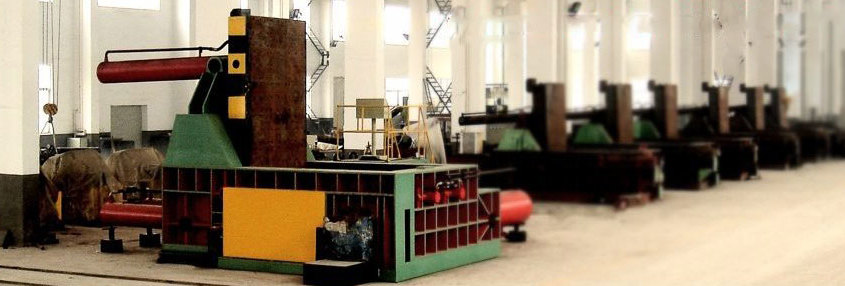Metal Scrap Baling Press
Betal scrap baling press is a machine used to compress and bind metal scraps into compact bales for easier storage, transportation, and recycling. It is commonly used in scrapyards, recycling facilities, and manufacturing plants that produce metal waste.
How it Works
Metal scrap baling presses typically have a hydraulic system that compresses the metal scraps into a compact rectangular or cylindrical shape. The scraps are loaded into the machine through a hopper or conveyor belt, and then compressed by a piston or plunger. Once compressed, the bale is bound together with wire or straps to prevent it from coming apart during transportation.
Types of Metal Scrap Baling Presses
There are several types of metal scrap baling presses available on the market, including:
- Vertical baling presses: These machines have a vertical design and are ideal for processing smaller volumes of metal scraps.
- Horizontal baling presses: These machines have a horizontal design and are capable of processing larger volumes of metal scraps.
- Semi-automatic baling presses: These machines require manual loading and unloading of the metal scraps, but the compression and binding process is automated.
- Fully automatic baling presses: These machines are fully automated and can process large volumes of metal scraps without the need for human intervention.
Benefits of Metal Scrap Baling Presses
The use of metal scrap baling presses offers several benefits, including:
- Space-saving: The compact bales take up less space than loose metal scraps, making storage and transportation more efficient.
- Improved safety: Baling the metal scraps makes them less likely to cause accidents and injuries compared to loose scraps.
- Increased profitability: Compact bales are easier to transport and sell to scrap dealers, increasing the value of the metal scraps.
Conclusion
Overall, a metal scrap baling press is an essential machine for scrapyards, recycling facilities, and manufacturing plants that produce metal waste. It helps to compress and bind metal scraps into compact bales for easier storage, transportation, and recycling, offering several benefits such as space-saving, improved safety, and increased profitability.


